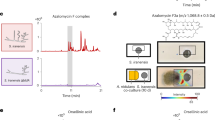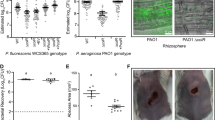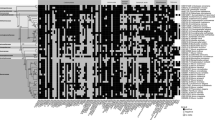Abstract
IN Prof. Bottomley's paper in the Proceedings of the Royal Society I cannot read that he makes any claim that the Pseudomonas and the Azotobacter he isolated from Cycas were in any way different in kind from the usual forms of these organisms. When I used the expression “Pseudomonas, the bacterium associated with leguminous plants”, it was as a sort of explanatory label for the lay reader, but if it has confused the issue at all I would still repeat my former criticism on Prof. Bottomley's basis that the Pseudomonas and Azotebacter he used are special and unlike all others. The question was if “the association gave an increased power of assimilating free nitrogen”, and Prof. Bottomley's figures are:—
This is a preview of subscription content, access via your institution
Access options
Subscribe to this journal
Receive 51 print issues and online access
$199.00 per year
only $3.90 per issue
Buy this article
- Purchase on Springer Link
- Instant access to full article PDF
Prices may be subject to local taxes which are calculated during checkout
Similar content being viewed by others
Author information
Authors and Affiliations
Rights and permissions
About this article
Cite this article
HALL, A. [Letters to Editor]. Nature 82, 218–219 (1909). https://doi.org/10.1038/082218b0
Issue Date:
DOI: https://doi.org/10.1038/082218b0
Comments
By submitting a comment you agree to abide by our Terms and Community Guidelines. If you find something abusive or that does not comply with our terms or guidelines please flag it as inappropriate.



